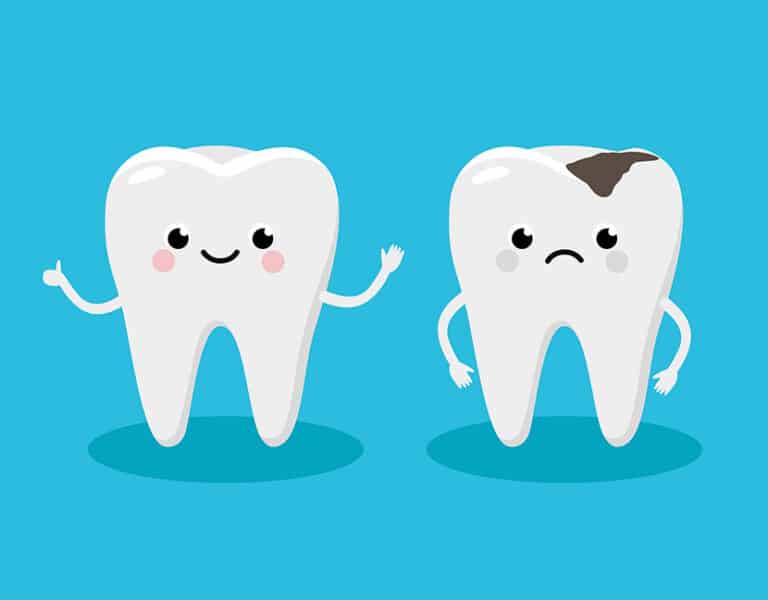What is a cavity?
According to the definition by the Mayo Clinic, “cavities are permanently damaged areas in the hard surface of your teeth that develop into tiny openings or holes.” The term cavity is used loosely when describing what is going on in your mouth, but every cavity that is diagnosed isn’t always a hole in your tooth. Cavities, also referred to as tooth decay or dental caries, are caused by many factors, including bacteria buildup, sipping on sugary drinks / snacking throughout the day, and not cleaning your teeth/mouth well enough.
How does decay develop enough to cause a cavity?
There is a whole downward spiral that occurs in our mouth if teeth are not maintained properly. After we have eaten that really good cupcake (or any food for that matter), our mouth develops a buildup of plaque – a clear film that covers our teeth and if cleaned properly can be easily removed! However, if that plaque is allowed to sit on the teeth for some time, it will harden and develop into tartar.
The acidity from the plaque and tartar build-up then starts to slowly remove the minerals that are needed to maintain the strength of our enamel, a process we refer to as demineralization. Once this continues, it will start to erode further into the tooth, beyond the enamel, and into the dentin, which means it’s starting to slowly encroach on the nerve of the tooth.
If allowed, the decay will continue to proceed to the nerve of the tooth where inflammation can then occur to where the tooth will then become very painful and need further treatment.
How fast does a cavity form?
Dental decay is not something that happens overnight. This is a process that can be completely reversible and halted if teeth are cared for properly and we maintain a healthy diet. Not to say stop eating the sweets and treats, but continue to keep your teeth clean with a proper cleaning regimen every morning and night, and your risk of going down this plaque spiral will be greatly decreased!
Do you still have questions?
Make sure to ask your local dentist about any questions you may have about cavities and decay in your teeth during your next visit. Your dentist will be able to show you how to properly take care of your specific oral health needs.





